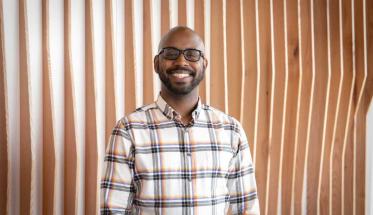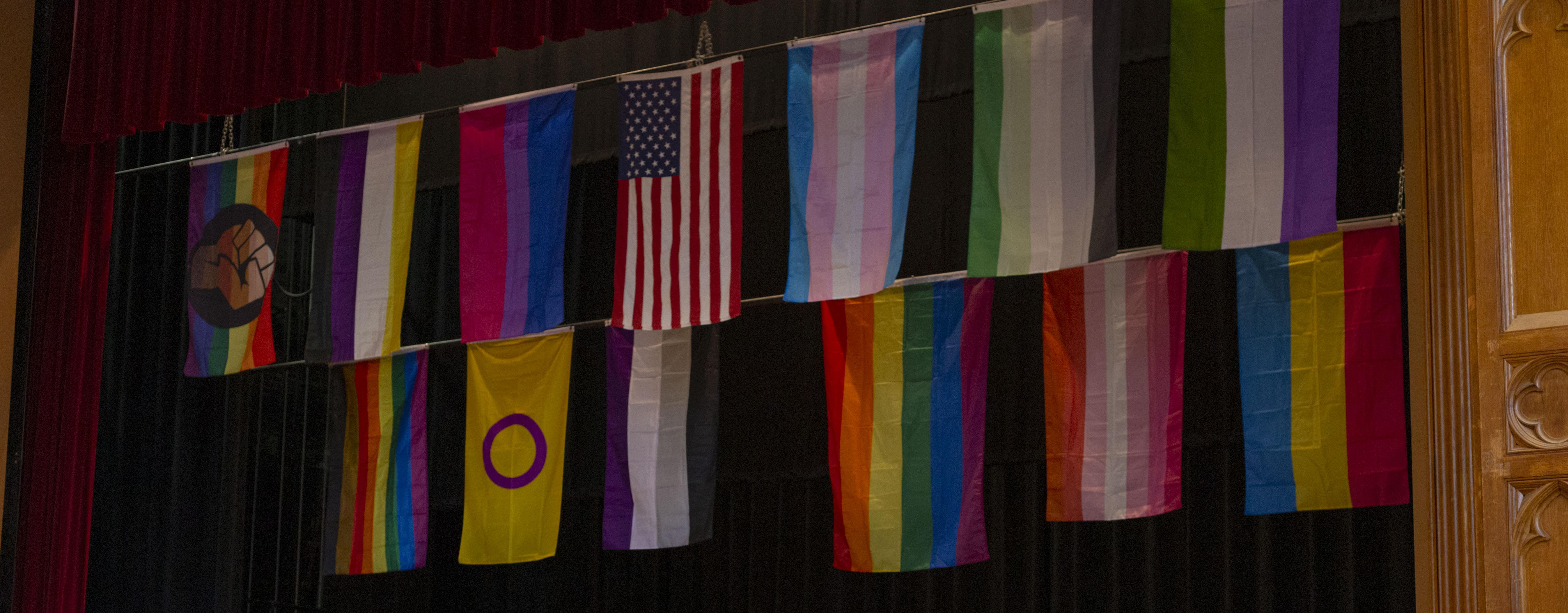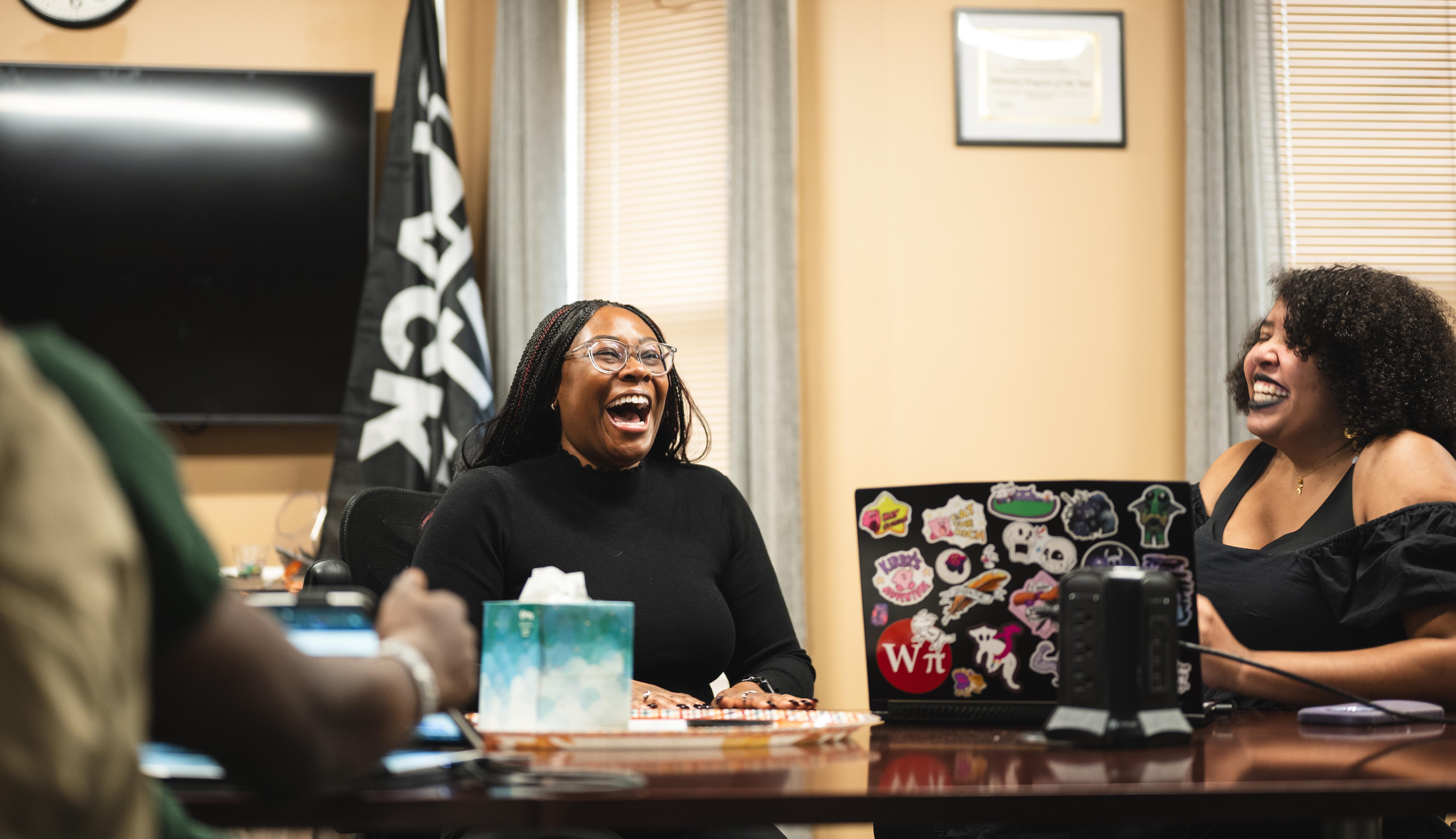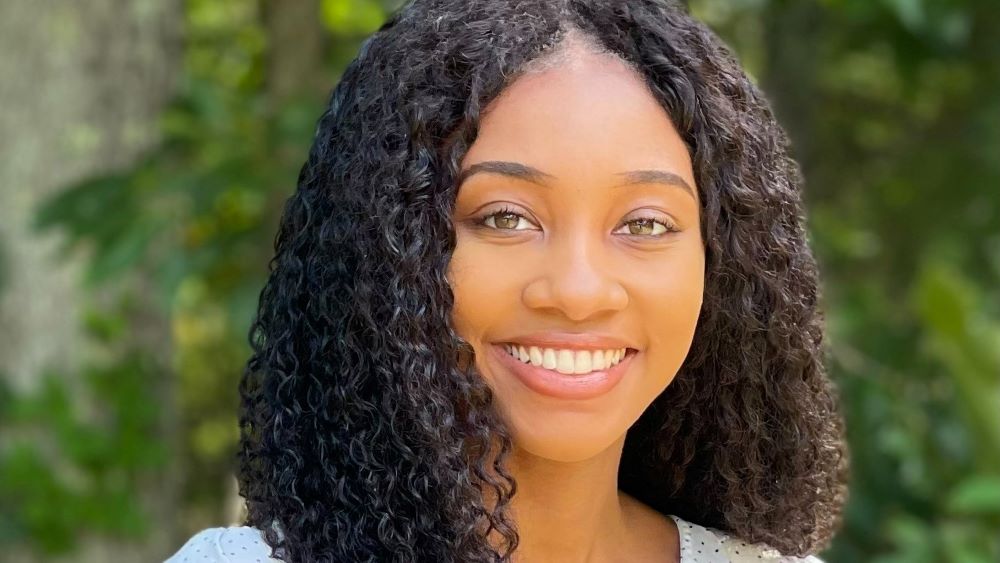In October of 2020, Arnold Lane, Jr. joined the WPI community as assistant director of the Office of Multicultural Affairs (OMA). Since arriving on campus, he has immersed himself in all things student success, and his work is only beginning. He sat down with the Herd to discuss how he went from STEM major to higher education professional, bringing student voices into various spaces on campus, the importance of diversity, equity, and inclusion, and being part of the solution.
What first drew you to WPI and the position?
Honestly, it was the racial reckoning the country was going through at the time. In 2020, after that summer, I knew I was going to get back into DEI work, it was just a matter of when. I was working in residential life and knew I needed to be part of the solution in a very different way. I was looking for opportunities because they were populating everywhere, and WPI called me first. I knew I wanted to come back to New England or at least to the northeast because I’m from New York originally. I am a Black man committed to racial justice and Dr. Tiffiny Butler [former Director of the Office of Multicultural Affairs] and the OMA team were doing good work; she sold me on it. There were some very deep, vulnerable conversations happening that summer. I wanted to be part of the solution, and I like to think that I am.
You touch a bit in your bio about how you originally wanted to work in high school administration before shifting to advocacy in higher education. Can you talk more about your decision to make that shift?
I was a STEM major in a past life. I was committed to being a computer science and math teacher, I wanted to be a principal, a superintendent. It is what I wanted to do, it was my niche; I wanted to work with adolescents, mold their minds, and prepare them for post-secondary experiences.
But as an undergrad, I got heavily involved in the multicultural clubs and organizations. I was in the Black Student Union, I was in student government, I was a part of the NAACP and the NSBEs of the world, and I really found a different calling. I did my student teaching experience and it was not all sunshine and rainbows; I learned a lot about myself and students, and I realized that maybe teaching in this setting is not for me. I was wavering, changing my major, figuring out what I wanted to do, and what I wanted to be. I finished with [a degree in] psychology, and during my junior year, my supervisor told me I could work in higher education. I took that for the gospel that it was, and I have followed that path ever since.
I enjoy working with college students as a student leader and now I have made a career out of it. I want to work with students of color and advance their needs and advocate on their behalf. I want to work with first-generation college students because that was my lived experience. I went to a predominately white institution; I know what it is like to look like and be the only in spaces, and I want to provide that sense of belonging and meaning. All the other identity groups just sort of came together, but it was really about that commitment to elevating the voices of Black and Brown students.
You first arrived at WPI in the midst of the pandemic; can you describe what that experience was like, and how (or if) beginning your time at WPI remotely has impacted the way you work now and are attuned to students’ needs, especially during such a unique time?
To be frank, it was weird. Everything was remote, my onboarding, my introduction to everyone. It was just interesting to interface and get to know the Institute from a virtual lens, and that made it really challenging to get the vibe. I could not really understand what was happening on the ground, I could not feel peoples’ presence, peoples’ energies, and relations to these different issues that folks were being impacted by. It was very helpful to come on the ground, but even when I did, there would only be one person in the office per week and students were not coming around because it was not safe. It was an interesting ordeal to navigate, but as things started opening back up, I really found that resurgence when I started doing in-person training sessions. That’s my home; I love being in front of people, in front of the room just talking about these issues, facilitating conversation and dialogue, and stimulating some learning. I felt at home, I felt like, okay, this is where I need to be.
You’re not just the director of multicultural education and community engagement; you’ve also played instrumental roles in supporting the latest strategic plan, the Beyond These Towers campaign, and the Mental Health and Well-being Task Force and Implementation Team. How do all of these roles intersect? What do you hope they’ll bring to each other?
I like to think that I am bringing the voice of students into those spaces. Part of the university’s larger strategic goals and priorities involve DEI, increasing the number of first-gen students, the number of BIPOC and ALANA students, as well as giving voice to our LGBTQIAP+ students, to our religious and spiritual students, to our women, and I think that is the expertise the OMA brings in. Those are the voices I try to bring to the table. I do not walk in everyone’s shoes, but I am able to articulate a particular experience that is helpful for these different groups or stakeholders to know about, to make sure we are offering programs, services, and initiatives that are meeting the needs of these different communities. Everyone interprets these issues very differently, so if we are only looking at them through one lens, or the majority lens, then we are doing a disserve to our community. I like to think that I am tapped into these groups for that purpose, to bring in these voices that are largely unheard or left out of the dialogue.
I also appreciate that there is some self-awareness there. Folks are aware that this information is missing, or these groups of students are missing, and I hope that we can continue having this lens because we are not all perfect. We have to do our best to make sure we are honoring the identities and cultures who are not a part of the conversation or the larger context.
What kinds of strides do you envision OMA and WPI’s campus in general to have made over the next five years?
I would love for DEI to continue being an institutional commitment. It is my understanding that the university envisions increasing the enrollment numbers of the diverse student populations, and I hope that we are also able to invest in physical infrastructure. I hope that we can invest in support staff to serve these students in a consistent way, a sort of mentorship experience, if we are in a position to do that. I would love to see us continue investing in the needs and priorities of these students, investing in their research and scholarship, making sure they have the financial means to be successful and thrive at WPI, not just surviving. I would love to see new programs, services, and initiatives.
Has there been a particular moment or experience that’s really stuck with you since you started at WPI?
I think this mental health crisis has put me in a very interesting space because our students are hurting and I do not know what it is like to go to school during a pandemic, so it is really hard to relate to their experiences. Typically, in higher education, relating is what you do; you relate back to your training, your personal experiences, your readings, and your research. But there is nothing that says how to navigate a pandemic, how to navigate student losses, especially the volume we have experienced. Being part of the task force and implementation team has had a profound impact on how I navigate this work in general and ensuring that I am keeping equity and inclusion in mind because you do not know who is being lost in the conversation until it is actually happening. I realized early on that students of color were not being centered in this—international students, students with disabilities, they are impacted by mental health in very different ways than their majority counterparts, and it has been an eye-opening experience for me.
Having in-depth conversations with our campus chaplains has also been very insightful. WPI is a unique school because we are very small, but have a lot of student groups, identities, and cultures wanting to be represented here. I am committed to growing out WPI’s spiritual life portfolio. [Reverend Cheryl Leshay] has opened my eyes to a lot of things to get me thinking differently about spiritual life, what holistic wellness actually looks like, and how we can coach and counsel our students in a different way than what we are used to. I do not think WPI’s fully tapped into the spiritual life portfolio within the office, so I am hoping to change that. Those are the two things this academic year that have really shaped how I want to approach this work.





